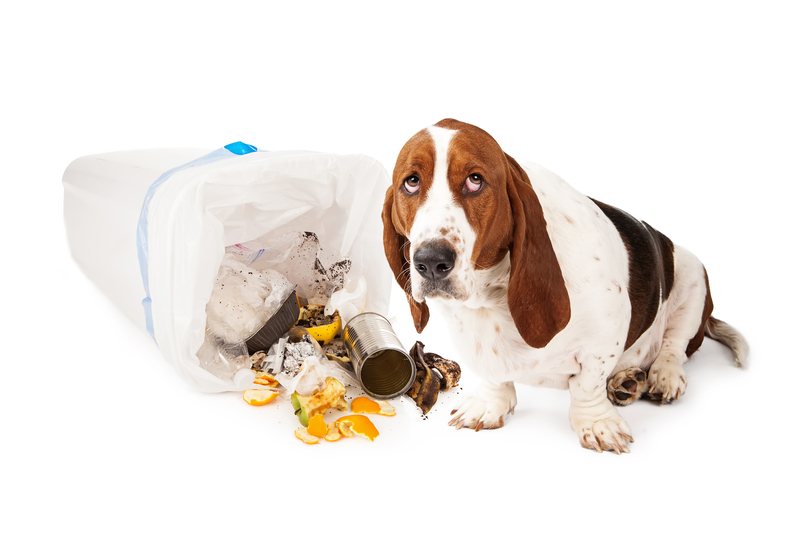Tips to Minimize Plastic Waste
Posted on 24/01/2025
Plastic waste is a global issue that threatens our environment, wildlife, and human health. With approximately 8 million metric tons of plastic entering the oceans yearly, taking action to minimize plastic waste is more crucial than ever. Here, we outline several practical tips and strategies to help reduce plastic waste in your daily life.
1. Use Reusable Bags
One of the easiest ways to reduce plastic waste is by using reusable bags for shopping. Opt for durable cloth or canvas bags, and remember to carry them whenever you go to the store. Not only do reusable bags cut down on the need for single-use plastic bags, but they also offer a sturdier alternative.

2. Ditch Plastic Bottles
A significant portion of plastic waste comes from bottled water and beverages. Switching to a reusable water bottle made of stainless steel or glass is an excellent way to eliminate this type of waste. Additionally, many cafes and restaurants offer discounts for bringing your own reusable cup.
3. Avoid Plastic Straws
Plastic straws are among the most commonly found plastic waste items in the ocean. They are easily replaceable with alternatives such as stainless steel, glass, or bamboo straws. Some drinks don't even need a straw at all!
4. Say No to Single-use Plastics
Make it a habit to refuse single-use plastics like cutlery, plates, and takeout containers. Many of these items have eco-friendly alternatives made from biodegradable materials. When ordering takeout, ask the restaurant to skip the plastic utensils if you are eating at home.
5. Buy in Bulk
Purchasing products in bulk can significantly reduce the amount of plastic packaging that comes with smaller items. Consider buying grains, nuts, and other dry goods in bulk and store them in reusable containers at home. Additionally, many bulk stores allow you to bring your own containers.
6. Opt for Plastic-free Packaging
Many products now come with eco-friendly packaging alternatives. Choose items packaged in cardboard, glass, or aluminum instead of plastic. Support companies that prioritize sustainable packaging by choosing their products more often.
7. Recycle Properly
Recycling is a critical component in minimizing plastic waste. Always follow your local recycling guidelines to ensure that your recyclables, especially plastics, are processed correctly. Ensure the plastic items are clean and free from food residue before tossing them into the recycling bin.
8. Educate and Advocate
Raising awareness about plastic waste and advocating for change can have a significant impact. Encourage friends, family, and your community to adopt plastic reduction practices. Support policies and initiatives that aim to reduce plastic production and promote recycling.
9. Participate in Clean-up Activities
Get involved in local clean-up efforts in your community. Whether it's a beach, park, or neighborhood clean-up, participation can help reduce the plastic waste that ends up in natural environments. These activities can also serve as a powerful reminder of the impact of plastic waste.
10. Make DIY Products
Many household products come in plastic packaging. Consider making your own cleaning products, beauty products, and even food items like yogurt or bread. This can help you cut down on plastic packaging and ensure you know exactly what goes into the products you use.
Pros and Cons
Pros:
- Helps reduce the environmental impact of plastic pollution.
- Promotes a more sustainable lifestyle.
- Can lead to cost savings in the long run.
- Encourages the use of natural and eco-friendly products.
Cons:
- May require a lifestyle adjustment.
- Initial costs for reusable items could be higher.
- Availability of eco-friendly alternatives can be limited.
- Active participation and commitment are necessary.

Takeaways
- Small changes collectively make a significant difference in reducing plastic waste.
- Opt for reusable and sustainable alternatives wherever possible.
- Proper recycling is an essential component of managing plastic waste.
- Awareness and advocacy play vital roles in creating systemic environmental changes.
Conclusion
Minimizing plastic waste is not only beneficial for the environment but also for our health and future generations. Implementing these tips can contribute significantly to reducing the plastic footprint and promoting a more sustainable lifestyle. Taking action, no matter how small, adds to the collective effort towards a cleaner and healthier planet.

